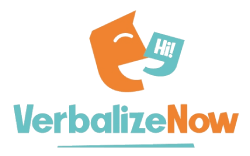The cover letter is a fundamental part of the job application experience. In fact, we’re so used to the idea of submitting a cover letter with our resume that we might even take it for granted. Even if a job posting doesn’t require a cover letter, it’s still wise to include one. Cover letters give you a chance to highlight your strengths and give explanations for some of the weaknesses. This simple fact makes them a professional business English skill that you need to master if you’re looking to get hired in 2021. In addition, it’s a great way to make a good first impression and show off your business Engish mastery.
The Basics
A cover letter should be easy to read and professional-looking. This means no fancy fonts! Typically, times new roman or arial are safe bets, set in 12 point font. Save your creativity for your resume: cover letters are expected to be conservative in nature. A plain, boring Word document is actually ideal in this case. In addition, the tone of the cover letter is generally expected to be formal, meaning you should address the reader as “Mr.” or “Mrs.” and use respectful business English phrases. Oh, and this goes without saying, but double and triple check your cover letter for spelling and grammar mistakes. Nothing says “I don’t care” like a bunch of typos.
Who To Address It To
The days of addressing a cover letter to “Dear sir or madam” are over! Do some research and find out the name of the hiring manager if you can. LinkedIn can be very useful in this regard. If you’re willing to put in the research, it will show the hiring manager that you’re a proactive worker who’s capable of finding your own solutions. If you’re totally unable to find their name, addressing the letter to “Dear Hiring Professional” is a safe choice. However, in general, it’s good to be as specific as possible.
What to Include, and What Not To
Even if you’ve never sold anything, a cover letter is your chance to sell yourself. If you want to break into a new career but have limited experience, your cover letter is your opportunity to explain why you’re qualified. Recruiters typically see gaps in employment history as potential red flags, so from a more practical standpoint, cover letters can help you explain gaps in your resume. Just be honest, and of course, be positive.
The Power of Positivity
Be positive about your achievements, and be positive about the negatives too. Don’t complain about previous employers, even if it’s tempting! Always frame the negative experiences from your career in a positive light: surely, you learned something valuable from the tough times.
Here’s an example of what we mean by framing things in a positive light: let’s say you spent two years at a company you hated. You were given zero support from management and were expected to figure everything out on your own. This can be stressful, but an experience like this can be constructive. After all, you demonstrated sef-sufficiency and the ability to manage yourself. Focus on that rather than the negativity, even if the negativity is all you remember. This rule goes for interviews too. No employer bashing! Not only will it not affect your former employer, it won’t do anything to help you in an interview.
Verbalize Now is the online business English school that can take your career to the next level. If you’re a professional who has got the skills to succeed but aren’t feeling confident about your English, we can help. Our personalized lessons and positive, encouraging online business English classes will give you the confidence you need to start interviewing with English-speaking companies. Contact us if you’re ready to start your journey to a better career.










